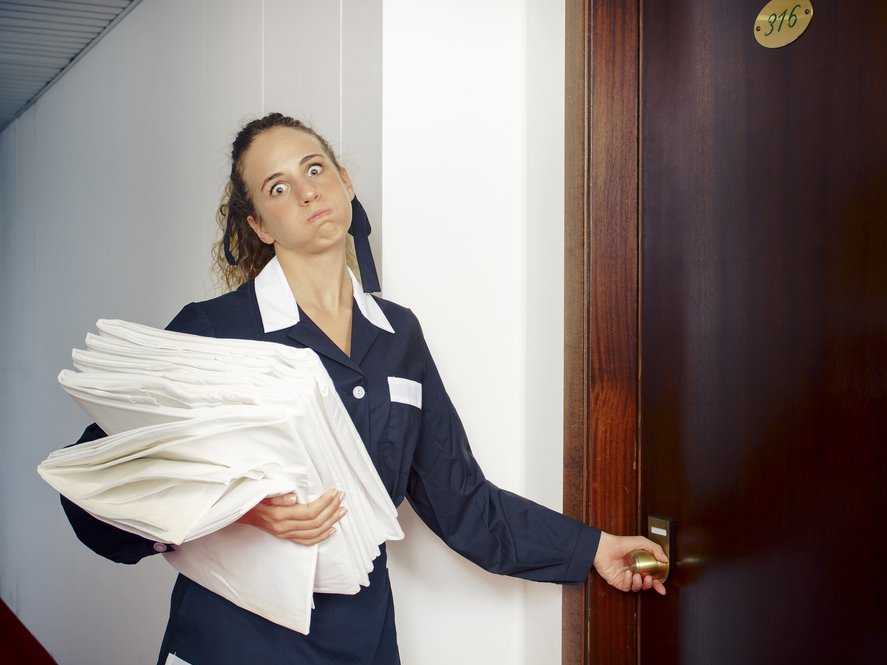
The hospitality industry in the U.S. has been reeling from the effects of the coronavirus pandemic, with hotels furloughing their staff – if not laying them off. In fact, 74 percent of hotels would be forced to lay off more employees if the federal government does not help them tide over.
A study released by the American Hotel and Lodging Association (AHLA) in August presented key issues the hospitality industry is facing in light of the pandemic. These included a 38 percent unemployment rate in the industry—almost four times that of the national average, two-thirds of hotels having 50 percent occupancy rates or lower, and consumer travel remaining at an all-time low.
AHLA President Chip Rogers lamented the impact of the coronavirus pandemic, with no sign of a recovery in sight. He commented that occupancy rates in hotels were not even near last year’s figures—resulting in thousands of hotels unable to pay their mortgages and facing the possibility of being foreclosed and ending operations for good.
Rogers urged Congress to act immediately to address the consequences of the sudden drop in demand for accommodations—specifically, the job losses in hospitality “devastating to our industry, our communities, and the overall American economy.”
“Every member of Congress needs to hear from us about the urgent need for additional support, so that we can keep our doors open and bring back our employees,” he said. “Thousands of hotels are in jeopardy of closing forever, and that will have a ripple effect throughout our communities for years to come.”
Hotels across the U.S. are set to lose more than $400 million in daily room earnings because of COVID-19, which translates to weekly losses amounting to $2.8 billion. Stay-at-home orders mandated by different states, some punishable by jail time, rub salt into the hospitality industry’s wound.
As a consequence of operational losses caused by the pandemic, some hotels have permanently shuttered their doors -- as in the case of the Hilton Times Square hotel. According to a Sept. 4 report by USA Today, the Hilton Times Square hotel will close its doors for good effective Oct. 1 due to “unforeseeable business circumstances prompted by COVID-19.” Two hundred employees will lose their jobs once the 478-room hotel folds up, the report added.
Several hotels have reopened with cleaning and disinfection measures in place
Despite the challenges the hospitality industry, in general, is facing, some hotels in the U.S. have opened their doors to guests with extra steps to ensure cleanliness—even though people won’t be going anywhere for some time.
In April, Marriott announced its use of enhanced technologies to sanitize surfaces in all its hotels. Marriott will be using electrostatic sprayers with hospital-grade disinfectants to clean and disinfect entire areas such as guest rooms and lobbies. The hotel chain is also exploring the use of ultraviolet light to sanitize room keys for guests and devices shared by staff members. (Related: Filthiest item in a hotel room isn’t the mattress... it’s the T.V. remote.)
In addition, measures previously considered commonplace in hotels before the pandemic will be handled differently in the new normal. Omni Hotels & Resorts is now encouraging guests to park their cars themselves instead of relying on valet services, as part of its Omni Safe & Clean program. The program also enables limited contact room entry and room service protocols, alongside limited contact check-in and check-out.
Individual states might lift their stay-at-home orders to get the economy rolling and allow businesses to operate again, but it might be too late by then.
Data provided by the Johns Hopkins University shows that the U.S. currently has the highest coronavirus caseload at 6.9 million, with 202,762 fatalities and 2.7 million recoveries recorded.
Find out more news about coronavirus pandemic’s effects on the hospitality industry at Pandemic.news.
Sources include:
Please contact us for more information.














